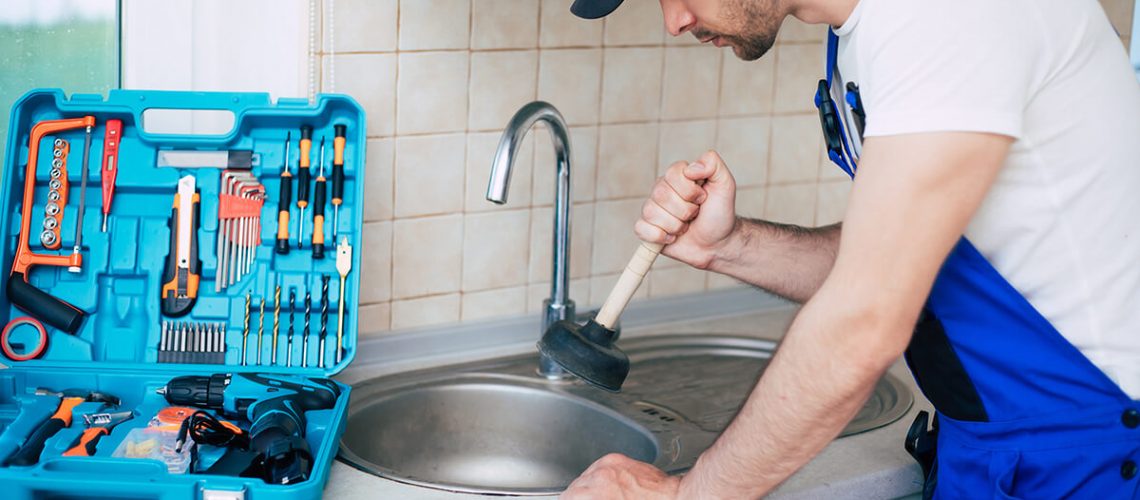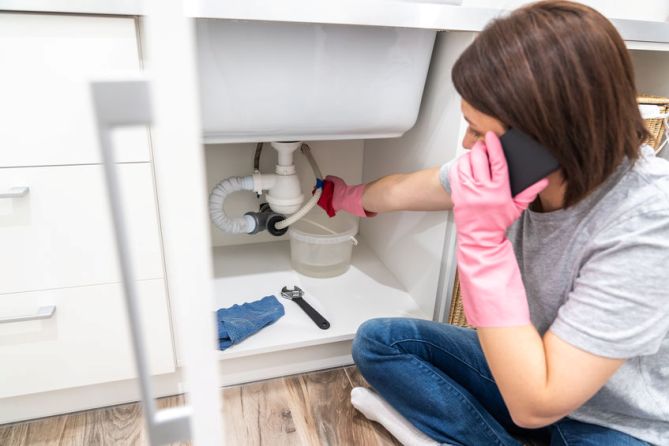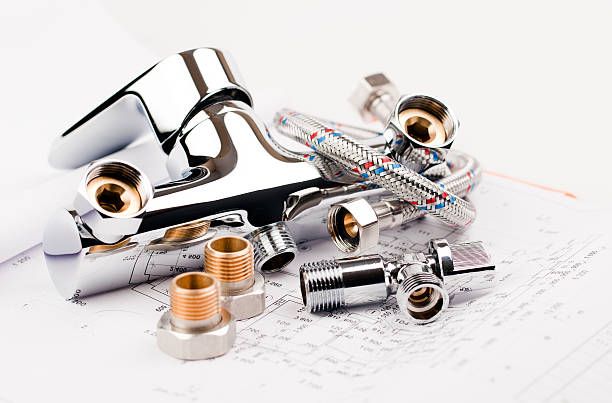We’ve all been there. You are doing your dishes, and the garbage disposal starts to leak water onto your floor, or you’re cooking dinner and suddenly notice that there is water coming from underneath the sink. How frustrating! There are many causes for leaking garbage disposal (or dishwasher), but thankfully, we have some tips on fixing it!
A garbage disposal leak can occur in three places: the bottom, top, or side. The source of the leak is a good indicator of the severity of the situation. The required repairs are usually not with the waste disposal device itself but with the surrounding plumbing.
Garbage Disposal Leak From The Bottom
If you feel that your garbage disposal is leaking from the bottom, you’ll almost certainly need to replace it. But, before you jump to any conclusions, double-check that the leak is coming from the garbage disposal’s bottom.
Because the water travels, it’s possible that your disposal is dripping from the bottom but is leaking from the flange or dishwasher/drain piping. Dry your garbage disposal with a paper towel, then keep an eye on it to detect where the water is escaping.
The problem is the same whether your garbage disposal is leaking from the reset button, screws, or holes in the bottom. You have a significant issue that will almost certainly necessitate the purchase of new garbage disposal.
A faulty internal seal within the device is the most likely cause. Internal seals in garbage disposals safeguard the motor and keep the device from leaking. These seals wear out over time and are no longer able to serve their intended function.
A break in the protective shell cover that surrounds the garbage disposal is another probable culprit. Regardless of whether your disposal is leaking due to the case or an internal seal, you’ll need to replace it.
How To Fix It
If this is your problem, your options are pretty limited. Keep in mind that water and electricity aren’t exactly friends, so you’ll want to get this repaired as soon as possible.
Your only real solution is to purchase brand-new garbage disposal. You can expect the new disposal to last between 8 to 15 years, depending on the amount of use and the quality of the appliance.
Garbage Disposal Leak From Top
If your garbage disposal is leaking from the top, it’s possible that the issue isn’t with your disposal. The sink flange, which links to the mounting ring of your disposal unit, could be the source of the problem.
The flange is the visible component of your sink that surrounds the drain hole in the middle. Most flanges are sealed with a plumber’s putty (a clay-like sealer) to avoid leakage. Some disposals employ screws to tighten the flange in place, though this is not typical.
The plumber’s putty can wear out (or the screws can loosen) over time, and the sink flange can no longer make a watertight seal. Other plumbing repairs under the sink may cause the garbage disposal to be struck or dislodged, compromising the seal.
How To Fix It
Plumber’s putty is used to seal most garbage disposals. You’ll have to remove the garbage disposal, clean off the old putty, and then reseal it. Other disposals rely solely on a flange that is tightened and compressed using screws. Something may need to be replaced. In either case, if you don’t know what you’re doing, this can be a major job (it requires removing and replacing drain pipes as well).
Garbage Disposal Leaking From Side
When your garbage disposal leaks from the side, it’s usually the dishwasher drain or the main drain line that’s the source of the problem. In most circumstances, this is a reasonably simple repair that you can complete without the assistance of a plumber.
The garbage disposal is connected to two drain lines: a dishwashing drain and the main drain line. The smaller drain travels through the wall and links the dishwasher drain pipe to the dishwasher intake on the trash disposal, while the larger drain runs through the wall and connects the appliance to the sewer. Because not all disposal units use the dishwasher drain, if you don’t have one, you won’t have to worry about this issue and can instead concentrate on the main drain line.
How To Fix
Tighten or reseal the connections: A metal clamp connects your dishwasher to your garbage disposal. You can tighten this with a screwdriver to see if the leakage stops. The main drain line is screwed together and features an internal rubber gasket. It’s possible that the screws need to be tightened or the rubber gasket needs to be replaced.




